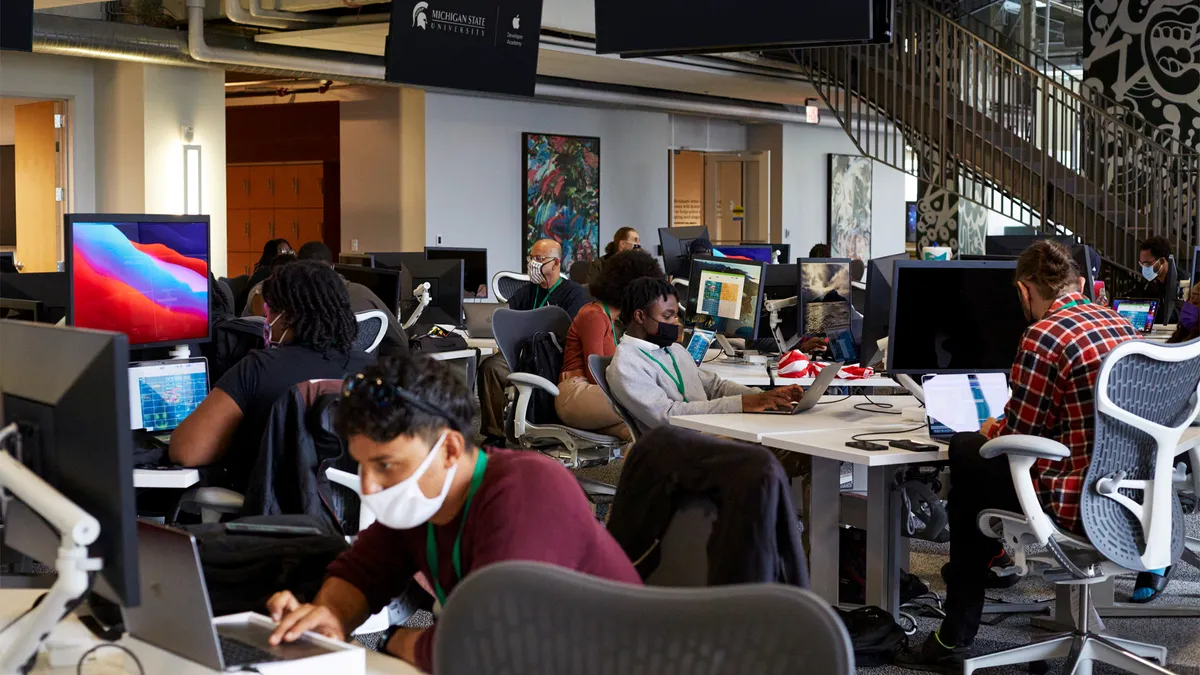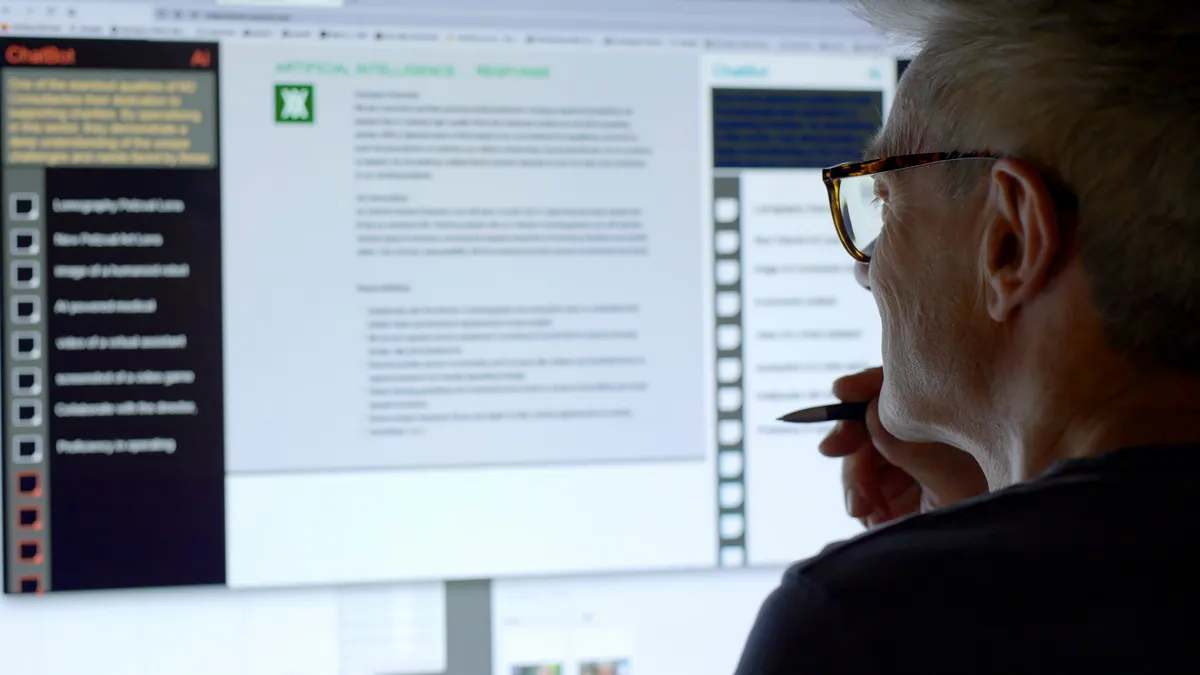The coronavirus pandemic has forced some companies to focus on upskilling and reskilling employees to strengthen workforce development as employers turned to hiring freezes or furloughs during financial difficulties.
In January, there wasn't much change in payroll employment with only 49,000 jobs added; and the labor force participation rate also remains below pre-pandemic levels, according to the February U.S. Bureau of Labor Statistics report. To remain competitive for the most in-demand jobs, workers seeking employment may need additional training in digital skills, various experts have said.
The national nonprofit SkillUp Coalition coordinates services for workers across the country who are impacted by the pandemic to prepare for in-demand career paths, offering financial support to cover tuition costs of training programs. SkillUp announced Feb. 2 a new partnership with Goodwill Southern California to offer access to job training and career opportunities for workers and job seekers across the greater Los Angeles area. "This could not be more pressing than right now as we work to ensure an equitable economic recovery in which all workers have a pathway to quality jobs," Patrick McClenahan, president and CEO, Goodwill Southern California said in a statement.
Steve Lee, executive director of the SkillUp Coalition, shared with HR Dive why the organization was created and how it intends to get participants into jobs. The below conversation was edited for clarity and style.
HR Dive: At what point during the coronavirus pandemic did you realize the need to form the SkillUp Coalition?
Lee: The realization came almost immediately. After the first wave of layoffs in March, it quickly became clear that this was not going to be a short-term challenge — and that displaced workers would need support and guidance to navigate the path back to work.
In the months to follow, we sprang into action to recruit partners from across the workforce development landscape, and launched the SkillUp Coalition in July, just as the initial $600 federal unemployment insurance supplement was set to run out. We also recognize that while COVID precipitated action, COVID only exacerbated and cast a light on the rising income inequality that existed before the pandemic.
HR Dive: Can you describe some of the new pathways to economic mobility that you're focused on?
Lee: The crux of the SkillUp Coalition's work is our partnerships with local and community-based organizations, which — in concert with the work of our national nonprofit partners — enables us to build pathways that are responsive to both the aspirations of job seekers and the needs of the local labor market. In Southern California, for instance, we've joined forces with Goodwill SoCal, local training partners, and large retailers to offer COVID-impacted workers pathways into pharmacy technician jobs that have high opportunities for growth.
HR Dive: Industries that are expected to grow in the coming years include health care, technology, skilled trades, and logistics. What kinds of partnerships does the SkillUp Coalition have to upskill frontline workers in these fields?
Lee: SkillUp partners with education and training providers that have a proven track record of helping students access high-growth careers in these industries through free and low cost, short-term programs that combine skills training with career guidance and other supports. The overall coalition has grown to include nearly 60 partners, with the majority being vetted upskilling providers — including Climb Hire, Coursera, edX, General Assembly, MedCerts, Penn Foster, Per Scholas, Southern New Hampshire University and Year Up, to name just a few.
HR Dive: Is there a program track in which a participant receives a certificate upon completion of training?
Yes, participants in several programs offered by SkillUp Coalition partners receive either a certificate or an accredited degree (e.g., associate's or bachelor's), including programs like Per Scholas and Coursera. Our platform is designed to help displaced workers identify the programs that will be the best fit for their needs and career goals.
HR Dive: Are your partner companies providing entry-level employment opportunities for participants?
Lee: Some employer partners, including Gainsight, Year Up, and CoolSys are recruiting for candidates from SkillUp.org for open, in-demand jobs. Others offer open positions that require less previous training or may even be entry-level, but provide robust opportunities for employees to "learn while they earn'' and offer a direct path to in-demand jobs.
HR Dive: Is there a target age group for SkillUp platform users?
Lee: SkillUp is available to all displaced workers, those who have been laid-off, those who have been furloughed, those under-employed, and anyone who is looking to upskill into a high-growth career path. A disproportionate number of these workers are women, people of color, individuals under the age of 35, or folks who were previously employed at small and medium-sized businesses. Our goal is to make the platform and its support systems as accessible as possible to anyone who needs help, with a special focus on reaching those who have been hit hardest by the pandemic.






















